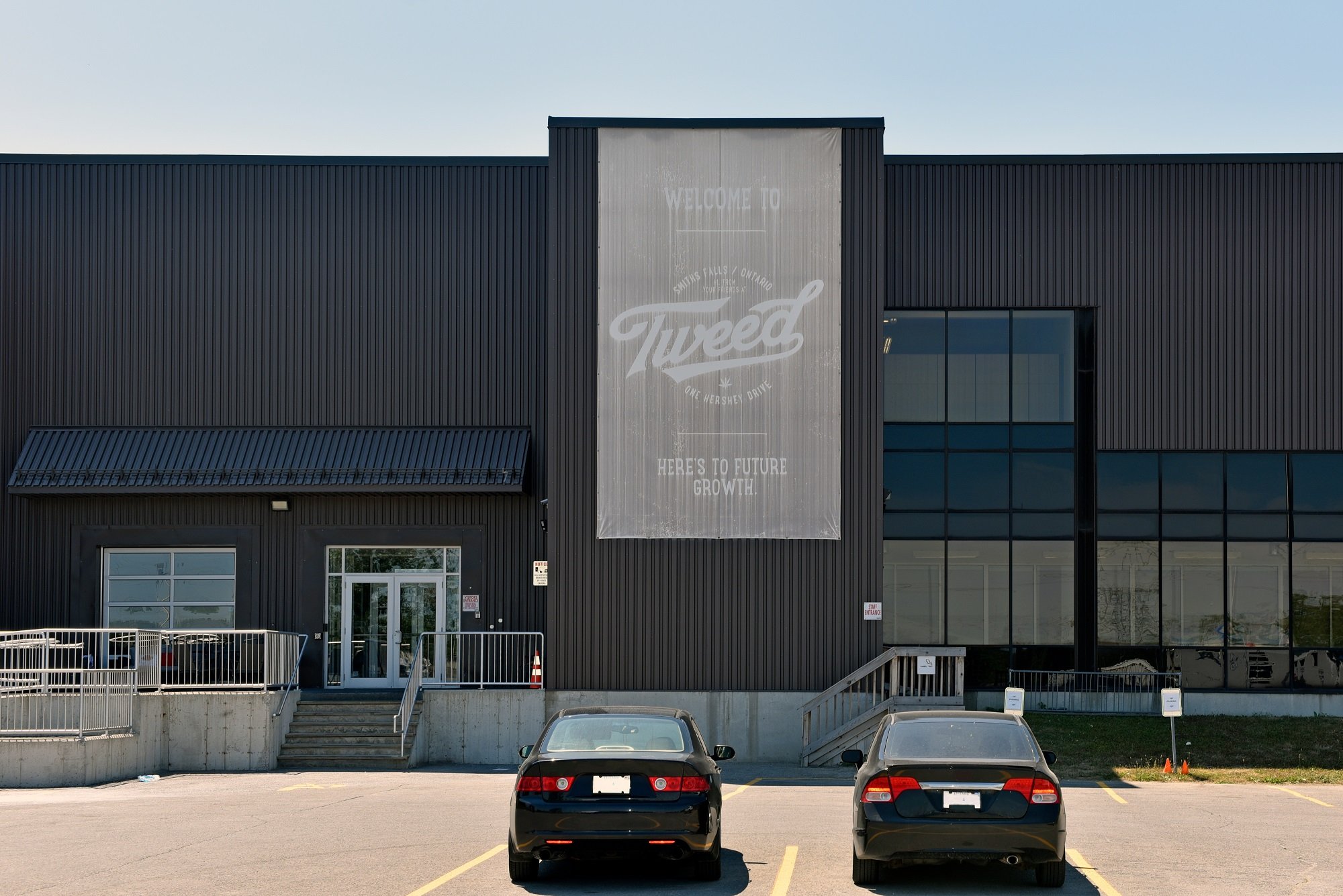
How Canopy Growth is Navigating the ‘Wild Wild West’ of an Uncharted Industry
As Canada’s legalization deadline for recreational cannabis draws closer, it seems new cannabis brands and campaigns are popping up every other day. There’s been plenty of speculation around what this means for consumers as well as advertisers in the hazy landscape of cannabis marketing. But David Bigioni, Chief Commercial Officer at Canopy Growth, sees this new frontier as an opportunity for innovation — and most importantly, education.
Canopy Growth is one of the biggest players in the industry, and includes high-profile brands such as Tweed, Spectrum and Leafs by Snoop (Snoop Dogg’s line of cannabis products). The company has proven itself to be a market leader, both by breaking new ground at its 10,000-square-foot Visitor Centre in Smith Falls, Ontario, and with its eye-catching billboards that encourage conversation around cannabis.
Bigioni is no stranger to marketing highly-regulated products — after all, he was both VP of Marketing and VP of Sales at Molson Coors before joining Canopy Growth. But cannabis marketing is an uncharted territory that comes with its own set of challenges, such as the establishment of rules and best practices. We spoke to him about the programs and tactics he’s looking forward to seeing come to fruition as the countdown to legalization ends.
Pressboard: The challenges of marketing in this industry are on the minds of a lot of people right now. What challenges have you experienced so far, and how have you overcome those?
David Bigioni: Having experience working in alcohol, which is also a regulated industry, requires a different lens creatively. As the box gets tighter, the more you need creativity and ideas to create friction and disrupt what others would assume is impossible.
I think the real work is understanding how to use that creativity in a way that is strategic and disruptive and allows you to unlock that potential into your campaign, into your marketing and into your reach. This is certainly what we have been focusing on: finding the right ideas, the right partners and the right way of getting at it that will allow us to maximize the opportunity.

Is there a marketing initiative that you’re particularly proud of?
We opened our 10,000 square foot Tweed Visitor Centre in late August and it’s just a phenomenal venue that walks you through the history of cannabis over the last number of generations, and then continues to where strains come from, the plant and its components. It also allows visitors to oversee cannabis plants being grown at each stage of the process and learn about how cannabis is grown, how it’s cultivated and how it turns into final product.
It’s located right at our head office at 1 Hershey Drive in Smith Falls, Ontario. It’s the same main footprint and location where Hershey used to have their Visitor Centre up until 2008. The Hershey Visitor Centre attracted over 400,000 guests a year to Smiths Falls and our goal is to bring those types of numbers back to the region.
I think it’s one thing to have the legal license to sell cannabis. What we need to build is the social license that allows us to operate in communities and be a good corporate citizen.
We’re taking this industry out of the shadows and into the light — or out of the back alleys and onto the main streets. Our Visitor Centre gives people a forum to learn and become educated about cannabis and all of the attachments, and I think that’s really the journey that we’re on as an industry: to help people understand and see if there’s a role for cannabis within their lives.
Why do you think the Visitor Centre is important?
Making sure people have the right education is really important. They need to have an understanding of a product that, for the most part, they’re familiar with and many have used either occasionally or on a regular basis. But when you ask them what they actually know about it, they know quite little.
We see this when we work through our consumer segmentation. People will say, “Oh yeah, I’ve used pot for the last 20 years”. Okay, so what’s the difference between Sativa and Indica? And many of them don’t know. What’s CBD? Terpenes? Softgels? They don’t know. So, there’s still a large opportunity for people to increase their knowledge base around cannabis in general and around strain types and strain variety, and how you know when one is appropriate for X
versus Y.
What are some marketing strategies you use as a cannabis retailer?
You need build a brand that is trusted for the advice, variety, choices and curation that it provides, and does that in a way that puts you in the community and demonstrates that you’re a good community partner. You’re a brand that educates freely, answers questions and provides guidance for what it’s selling. It’s there to make sure people have the right information to make the right choices.
We’re taking this industry out of the shadows and into the light — or out of the back alleys and onto the main streets.
As a marketer, what I love about retail is it is an immersive experience and has the opportunity to bring your values to life. It has the opportunity to create relationships and personal connections with your consumers in a way that traditional packaged goods brands don’t have.
What are some of the other barriers to brand building in this industry?
When you look at packaging regulations for instance, that’s something that is certainly more restrictive than we would have anticipated. But at the same time, you have to look at it as an opportunity to differentiate yourselves within a field of brands that largely have the same requirement.
The other thing I would say as far as when you think of the regulatory environment and where it’s most restrictive, is talking about cannabis strains, content, ingredients or THC and CBD components of the plant.
I think it’s one thing to have the legal license to sell cannabis. What we need to build is the social license that allows us to operate in communities and be a good corporate citizen.

On that note, do you think that stigma is still a real challenge for the industry?
We by no means are out of the woods just yet. I think it’s really incumbent on the industry to respect strong regulations, to play within the rules, to be responsible in addressing issues that people are concerned about — like getting cannabis out of the hands of youth, and the risks associated with driving. We want to be at the forefront of promoting safe and responsible use in communities.
I think that’s really the journey that we’re on as an industry: to help people understand and see if there’s a role for cannabis in their lives.
You just can’t take any of that for granted. Which is why through initiatives such as the Tweed Collective and through our partnership with MADD Canada, we’re really addressing head-on the importance of not consuming cannabis and getting behind the wheel.
I think making sure that through our retail stores, we are acting in a mature and responsible way, we have the literature and resources and creating a mass media message that is complementary to the one from government, and do it in a way that’s engaging — this is part of what we need to continue to do.
What advice do you have for other businesses who are building their cannabis brands?
You need to find authenticity in thinking in today’s day and age. Consumers are looking for brands that have a face, place and story. It’s really important as you think about brands across your portfolio, is that they’re coming from a place of authenticity. I think consumers will see through brands that are made up and feel shallow.
by Josh Kolm, Media in Canada Published September 16, 2014
Pressboard, a Vancouver-based marketplace seller of branded content that ..
Get your Content Marketing Fix
Sign up to receive tips on storytelling and much more.
We promise to respect your inbox.


